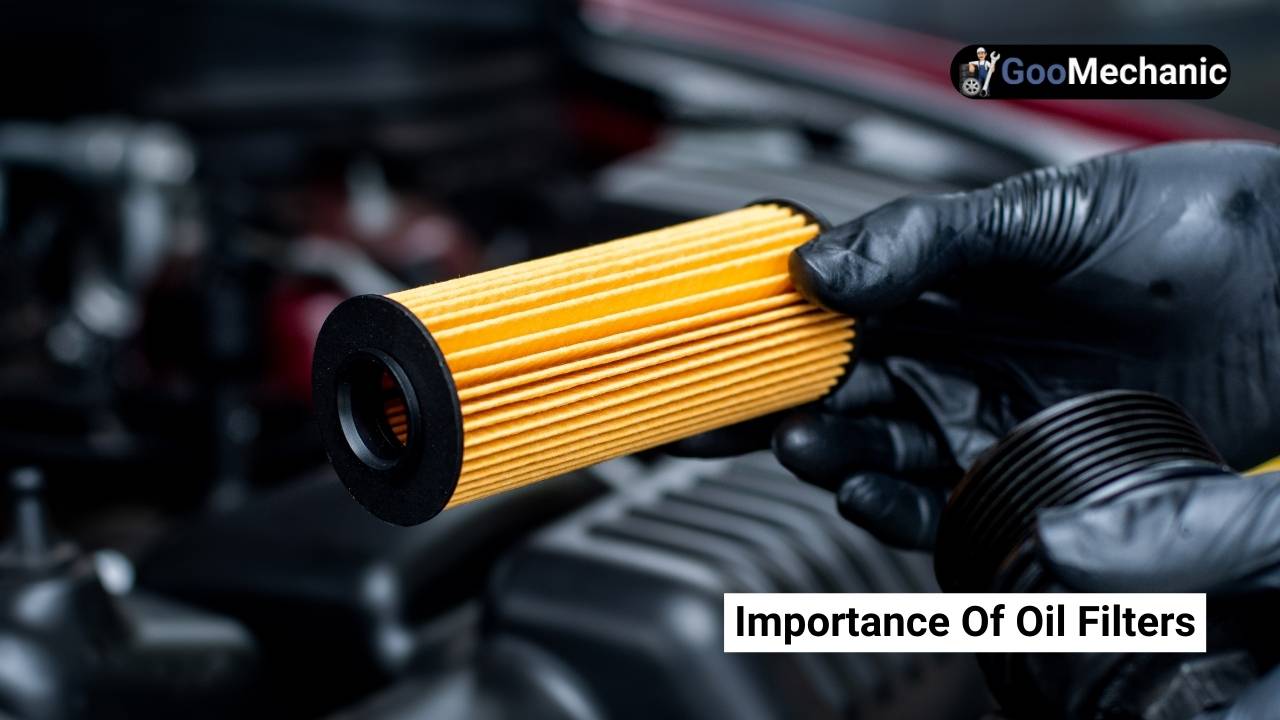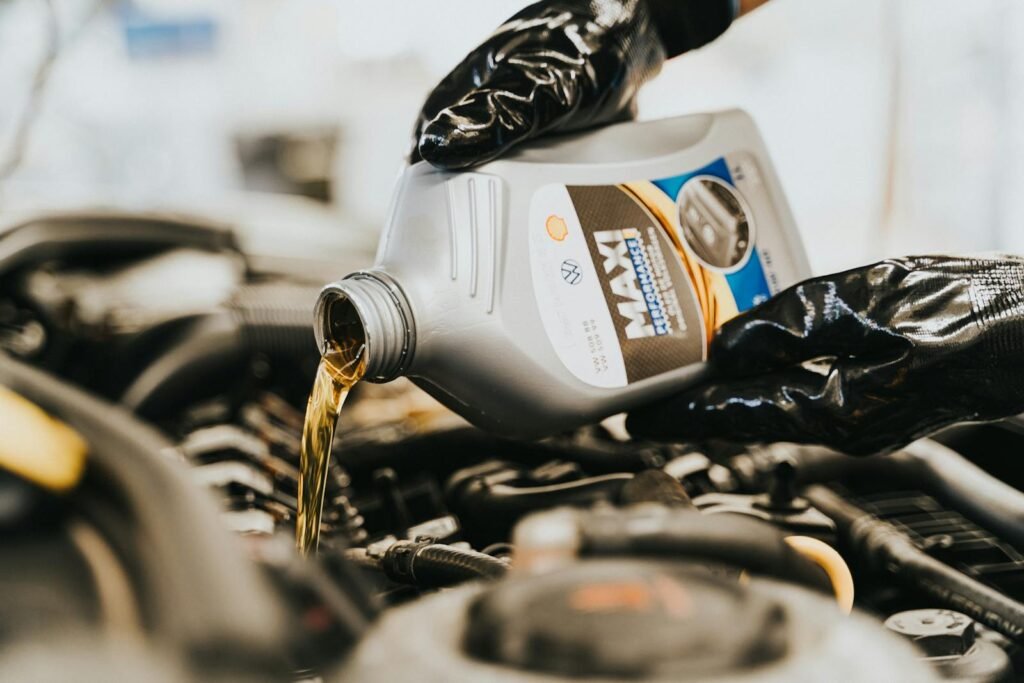Yes, the oil filter affects a car’s performance. A clogged or faulty oil filter can reduce engine efficiency and lifespan.
A properly functioning oil filter is crucial for maintaining a car’s performance. It ensures that the engine oil remains clean by trapping contaminants and debris. Clean oil lubricates engine parts effectively, reducing friction and wear. This contributes to better fuel efficiency and a longer engine life.
Neglecting the oil filter can lead to a buildup of particles, causing decreased engine performance and potential damage. Regularly changing the oil filter as part of routine maintenance helps keep the engine running smoothly. This simple step can prevent costly repairs and ensure optimal vehicle performance.
Importance Of Oil Filters

Oil filters play a crucial role in maintaining your car’s performance. They ensure that the engine oil remains clean and free from harmful particles. Clean oil is essential for the smooth operation of the engine. Poor oil quality can lead to severe engine damage.
Role In Engine Health
The engine relies on oil for lubrication and cooling. Without an effective oil filter, the engine oil can get contaminated. Contaminated oil can cause wear and tear on engine parts. This can lead to decreased engine efficiency and costly repairs. A good oil filter helps prolong the engine’s lifespan.
Preventing Contaminants
Oil filters are designed to trap contaminants and debris. These contaminants include dirt, metal particles, and sludge. By trapping these particles, the oil filter prevents them from circulating in the engine. Clean oil ensures smooth operation and prevents overheating. Overheating can cause serious damage to the engine.
| Contaminants | Impact on Engine |
|---|---|
| Dirt | Causes wear and tear |
| Metal particles | Damage engine parts |
| Sludge | Clogs oil passages |
Regularly changing the oil filter keeps the oil clean. Clean oil helps the engine run efficiently. This reduces the risk of breakdowns and extends the engine’s life.
Types Of Oil Filters

Understanding the types of oil filters is essential for maintaining your car’s performance. Each type has unique features and benefits. This section will cover the most common types of oil filters used in cars today.
Mechanical Filters
Mechanical filters use a mesh or a paper element to trap contaminants. These filters physically block dirt and debris from entering your engine. They are widely used due to their simplicity and effectiveness.
- Primary Material: Paper or mesh
- Function: Traps solid particles
- Maintenance: Replace regularly
Magnetic Filters
Magnetic filters use magnets to capture metallic particles in the oil. These filters are especially useful for removing tiny metal shavings. They help in keeping your engine free from metallic debris.
- Primary Material: Magnets
- Function: Captures metallic contaminants
- Maintenance: Clean or replace the magnet
Choosing the right oil filter can significantly impact your car’s performance. Always refer to your car’s manual for the recommended filter type.
How Oil Filters Work
Understanding how oil filters work is crucial for car performance. Oil filters play a vital role in keeping your engine clean. They remove contaminants from the oil, ensuring smooth operation. Let’s dive into the components and functions of oil filters.
Filtration Process
The filtration process is the primary function of an oil filter. When oil passes through the filter, contaminants like dirt, dust, and metal particles are trapped. The filter uses a special material to catch these impurities. This keeps the oil clean and ensures the engine runs smoothly.
There are different types of filter media used in oil filters:
- Cellulose: Traps particles as small as 8-10 microns.
- Synthetic: More efficient, captures particles as small as 5-7 microns.
- Microglass: Offers the best filtration, capturing particles smaller than 5 microns.
By filtering out harmful particles, oil filters protect engine parts from wear and tear.
Bypass Valve Function
Another important component is the bypass valve. This valve ensures oil flow even if the filter gets clogged. It opens when the filter is too dirty, allowing oil to bypass the filter. This prevents oil starvation and protects the engine.
The bypass valve typically opens under two conditions:
- During cold starts when the oil is thick.
- When the filter is clogged and restricts oil flow.
Without the bypass valve, a clogged filter could damage the engine. The bypass valve ensures oil flow, maintaining engine lubrication.
Understanding these components helps in choosing the right oil filter. A good filter ensures your engine runs smoothly and efficiently.
Signs Of A Faulty Oil Filter

An oil filter plays a crucial role in your car’s engine. It keeps the oil clean by filtering out contaminants. A faulty oil filter can lead to serious engine problems. It’s important to recognize the signs of a failing oil filter to keep your car running smoothly.
Oil Pressure Warning
A faulty oil filter can cause low oil pressure. The oil pressure warning light on your dashboard will illuminate. Ignoring this warning can damage the engine.
Low oil pressure means the oil isn’t reaching the engine parts. This can cause overheating and wear.
Unusual Engine Noises
Strange noises from the engine are a bad sign. These noises could be due to a clogged oil filter.
The filter may not be allowing oil to flow freely. This can cause grinding or knocking sounds.
| Sign | Explanation |
|---|---|
| Oil Pressure Warning | Low oil pressure due to a clogged filter. |
| Unusual Engine Noises | Strange sounds from lack of oil flow. |
Impact On Engine Performance
The oil filter plays a crucial role in a car’s engine performance. It removes contaminants from the engine oil, ensuring smooth operation. A clean oil filter enhances the engine’s health and efficiency. Let’s explore how an oil filter impacts fuel efficiency and engine longevity.
Fuel Efficiency
A clean oil filter improves fuel efficiency by ensuring clean oil flows through the engine. Contaminated oil forces the engine to work harder, reducing fuel efficiency. A clogged filter restricts oil flow, leading to increased fuel consumption. Regularly replacing the oil filter can save fuel and money.
Engine Longevity
A clean oil filter significantly extends the engine’s lifespan. It prevents contaminants from causing engine wear and tear. Contaminants can damage engine parts, leading to costly repairs. An efficient oil filter maintains engine health, ensuring smooth and long-lasting performance.
Choosing The Right Oil Filter
Choosing the right oil filter is crucial for your car’s performance. An oil filter keeps your engine clean by trapping contaminants. This helps maintain the engine’s health and efficiency. Below are some key points to consider when selecting an oil filter.
Compatibility With Vehicle
Ensure the oil filter is compatible with your vehicle. Check your car’s manual for the correct specifications. Using the wrong filter can cause oil leaks and engine damage. Always match the filter size and type to your car’s requirements. This ensures optimal performance and engine protection.
Filter Material Quality
The quality of the filter material is important. High-quality filters use synthetic or cellulose media. These materials trap more contaminants and last longer. Avoid low-quality filters that may clog easily. Quality filters improve oil flow and engine performance.
Here is a comparison of common filter materials:
| Filter Material | Advantages | Disadvantages |
|---|---|---|
| Synthetic | High efficiency, long-lasting | Higher cost |
| Cellulose | Affordable, widely available | Less efficient, shorter lifespan |
Choosing a filter with high-quality materials ensures better protection. It also extends the life of your engine and improves performance.
Maintenance Tips
Proper maintenance of your car’s oil filter is crucial for performance. Regular checks and replacements can prevent engine issues. Here are some essential maintenance tips.
Regular Replacement
Replacing your car’s oil filter regularly is vital. A clogged filter can reduce engine efficiency. It can cause poor lubrication and increase engine wear.
Most experts suggest changing the oil filter every 3,000 to 5,000 miles. Check your car’s manual for specific recommendations. Some newer cars may have different intervals.
Using a high-quality oil filter is also important. Cheaper filters may not provide adequate filtration. Always choose a filter that meets or exceeds your car manufacturer’s specifications.
Checking For Leaks
Regularly check your oil filter for leaks. Leaks can cause a drop in oil pressure. Low oil pressure can damage your engine.
Inspect the area around the filter for any signs of oil. Look for wet spots or drips. If you find a leak, tighten the filter or replace it immediately.
Check the oil level frequently. Low oil levels can indicate a leak. Keeping the oil level within the recommended range ensures proper lubrication.
| Maintenance Task | Frequency |
|---|---|
| Replace Oil Filter | Every 3,000-5,000 miles |
| Check for Leaks | Every oil change |
| Inspect Oil Level | Weekly |
Following these tips can help maintain your car’s performance. Regular maintenance keeps your engine running smoothly.
Common Myths
Understanding how an oil filter affects car performance is essential. Many myths surround this topic. Let’s debunk some of the most common ones.
Expensive Filters Are Better
Many believe expensive oil filters are always better. This is not true. The price does not always indicate the quality. Some affordable filters perform just as well.
Here’s a table comparing expensive and affordable filters:
| Feature | Expensive Filter | Affordable Filter |
|---|---|---|
| Price | High | Low |
| Material | Premium | Standard |
| Performance | Excellent | Good |
Notice that affordable filters can still provide good performance. Always check reviews and specifications before buying.
Frequent Changes Are Unnecessary
Some think frequent oil filter changes are unnecessary. This is another myth. Regular changes keep your engine healthy. Dirt and debris build up over time. Changing the filter removes these particles.
Here are some benefits of frequent changes:
- Improved Engine Performance
- Longer Engine Life
- Better Fuel Efficiency
Follow your car manufacturer’s recommendations for oil filter changes. This ensures optimal performance and longevity.
Frequently Asked Questions
Can A Oil Filter Cause Loss Of Power?
Yes, a clogged oil filter can reduce engine power. It restricts oil flow, causing increased friction and heat. Regular maintenance is essential to avoid this issue.
What Are The Symptoms Of A Bad Oil Filter?
Symptoms of a bad oil filter include engine sputtering, low oil pressure, dirty exhaust, and metallic noises. Regular oil changes can prevent these issues.
Does Changing Oil Filter Make A Difference?
Yes, changing the oil filter improves engine performance. Clean filters remove contaminants, protecting the engine. Regular changes ensure smooth operation and longevity.
Does High Performance Oil Filter Make A Difference?
Yes, high performance oil filters offer better filtration, improved engine protection, and longer oil life. They help maintain engine efficiency.
Conclusion
A clean oil filter is essential for optimal car performance. It ensures efficient engine operation and longevity. Regularly replacing the oil filter can prevent engine damage and improve fuel efficiency. Prioritize maintenance to keep your vehicle running smoothly. A little attention goes a long way in enhancing your car’s performance.
